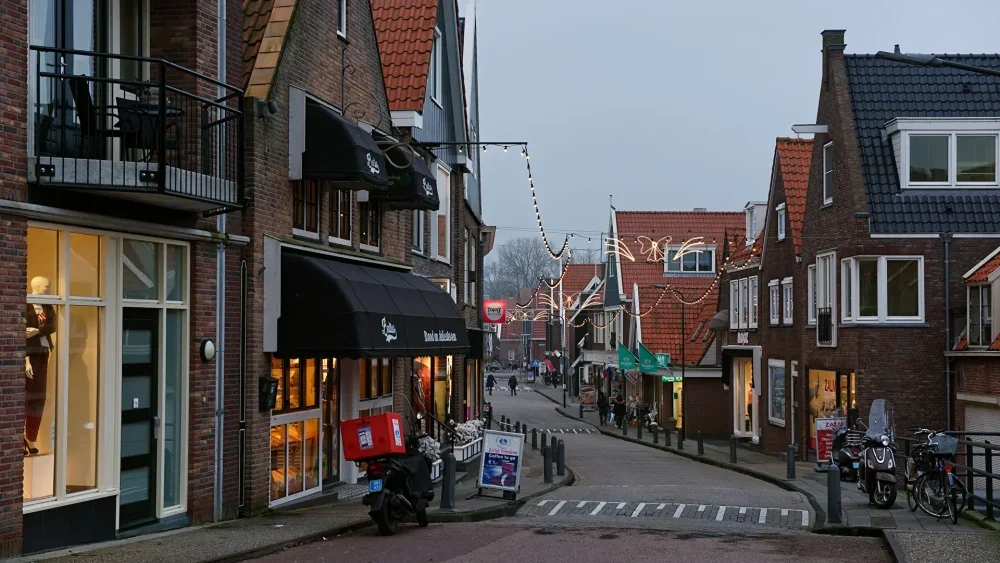Against the backdrop of increasing pressure on emerging markets, the high stability of the Kingdom of the Netherlands becomes an important argument for why to buy real estate abroad.
The Dutch legal system, transparency of transactions, high level of protection of private property, and a stable economy create favorable conditions for long-term asset ownership. Moderate price growth, high demand for rentals in cities with developed infrastructure, and the European tax system make the market particularly attractive in 2025.
Residency and living opportunities: the value of residency in a stable jurisdiction
The Netherlands offers opportunities for obtaining residency through business structures or investment projects, where purchasing property becomes an integral condition.
In addition to the right to legal residence, residency in the Netherlands provides access to European education, banking services, and social guarantees. The question of why to buy real estate abroad goes beyond just profitability—it concerns freedom, mobility, and personal or family migration strategy in the long term.
The Netherlands in investment strategies: where to invest in real estate abroad in 2025?
While stock and cryptocurrency markets remain unstable, real estate in stable European countries is considered the most reliable capital protection instrument.
The average return from reselling properties in Amsterdam, Rotterdam, and Utrecht is 7-10% per year, and rental rate growth outpaces inflation. In times of economic turbulence, investments in Dutch real estate ensure the preservation of a profitable base.
Key advantages of investing in the Dutch market
The Dutch model of managing cities and real estate creates favorable conditions for investors:
- high legal protection at all stages of the transaction;
- developed transport and educational infrastructure;
- stable rental demand in student and business clusters;
- potential for property value growth in peri-urban areas;
- modern architectural heritage and high energy efficiency.
Thus, buying property in the Dutch market is not only financially justified but also logistically rational in the context of European policy and urban planning. In such conditions, the question of why to buy real estate abroad receives practical justification: the asset functions simultaneously as an investment, migration tool, and element of strategic planning.
Ownership formats: from apartments to commercial real estate
The Netherlands offer a wide range of properties for purchase. Commercial real estate is particularly in demand—office spaces, shopping galleries, street retail properties. Amsterdam, The Hague, and Rotterdam remain centers of business activity, ensuring high liquidity of such assets.
The question of why to buy real estate abroad also often arises when analyzing residential projects: apartments in new buildings, townhouses in satellite cities, and renovated historical buildings are consistently rented out and show price appreciation.
Legislation and taxation: transparent conditions for foreign buyers
The Netherlands adhere to an open policy towards foreign investors. Transactions are supervised by notaries and financial institutions, eliminating fraud risks. Legislation does not impose ownership restrictions on non-residents.
When buying property abroad in the Netherlands, the owner obtains full rights to manage the asset, rent it out, sell it, or pass it on through inheritance. The tax base is clear: taxation is predetermined, and it is possible to optimize it through a sound financial planning structure.
Real earning mechanisms: from rent to value appreciation
The main question concerning investors is how to ensure stable profitability. The answer lies in real mechanisms that work in the Netherlands:
- long-term rental of housing to students, IT specialists, and young professionals;
- participation in municipal renovations and property value appreciation within neighborhood renewals;
- renting commercial spaces, especially in tourist and commercial areas;
- reselling at the completion stage of construction—after the property is put into operation, the price rises by 15-20%;
- property ownership as a condition for participating in investment programs to obtain citizenship through real estate investments, if EU policy changes in the future.
Thus, real estate becomes not just an asset but an actively working source of income and economic stability.
Safety, infrastructure, and ecology: important intangible assets
The answer to the question of why to buy real estate abroad in the Netherlands lies not only in the profit sphere. Resilience to climate challenges, attention to ecological standards, high urban planning culture make owning property in the Netherlands safe and comfortable.
Bike paths, parks, urban farms, and green roofs become part of the everyday environment. Low crime rates, digitization of management, and transparency of social systems enhance the sense of stability and trust in the state.
Promising cities for investments in 2025
Depending on the investment goal, one can choose both the capital region and developing clusters:
- Amsterdam—leader in rental and housing price appreciation, especially in areas bordering the historic center;
- Rotterdam—focus on commercial real estate and innovative construction projects;
- Utrecht—university capital, promising for rental investors;
- Eindhoven—city with the largest technology campuses, where profitability is above average;
- Groningen—popular among students and young professionals.
Each city has unique potential, and the variety of ownership formats allows adapting the strategy to specific goals.
Conclusion
In the conditions of a global crisis, weakening national currencies, and the desire to protect capital, it becomes evident why to buy real estate abroad specifically in the Netherlands.
High legal stability, migration opportunities, income diversification through rent and resale, as well as prospects for obtaining residency through real estate investments—all these factors make the Netherlands a strategically important direction for private and corporate investors. In 2025, the country remains a cornerstone for those who choose not only income but also stability, security, and freedom of movement!
 en
en  ru
ru  de
de  ar
ar  es
es  nl
nl  hi
hi  fr
fr  it
it  pt
pt  el
el 









